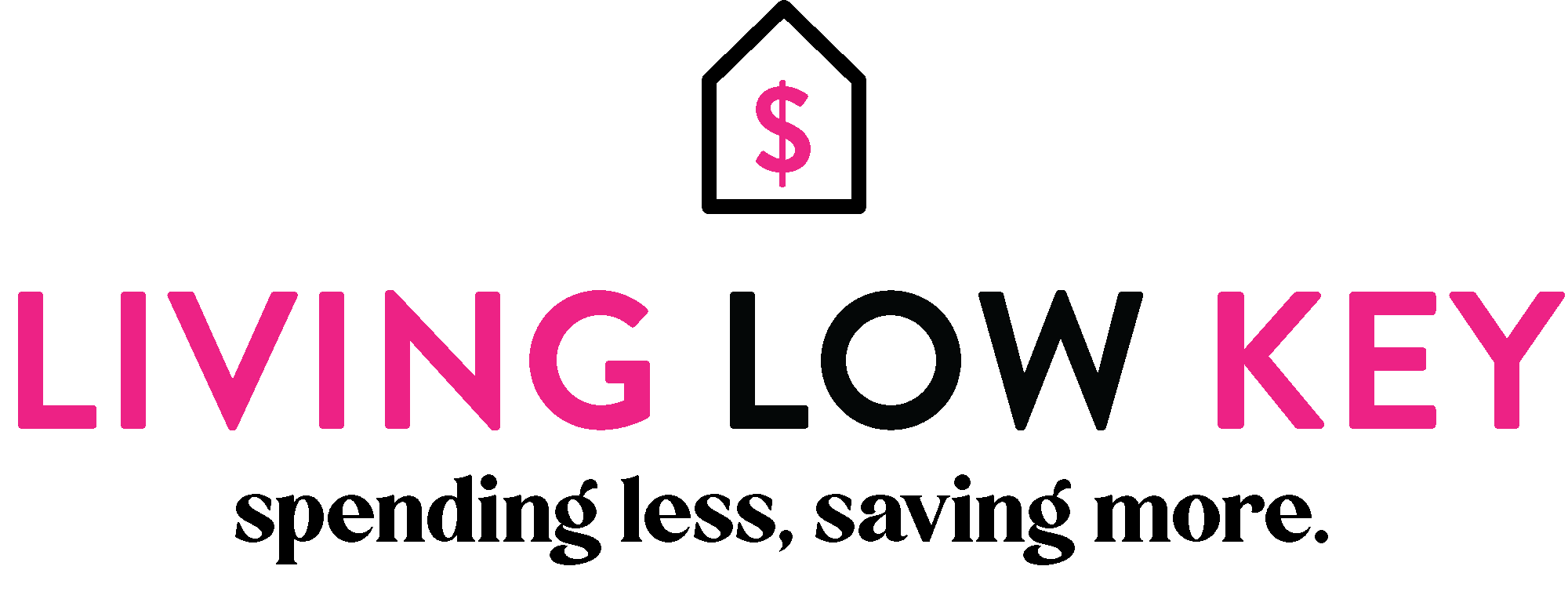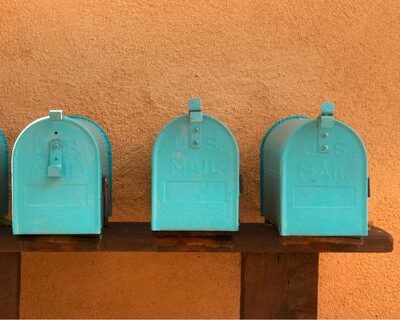Stop spending money on stuff you don’t need!
Have you ever looked at your bank account only to find hundreds of dollars missing and not accounted for?
No, nobody took your money, you spent it without even realizing you were doing it. Or maybe you did know it but just thought if you spent a dollar here or there it wouldn’t add up to much.
Hundreds of dollars later, you are in the same predicament that many of us are in today, and you can’t figure out how to stop spending money or where your money is going.
According to CNBC, millennials carry on average $38,000 in debt, which isn’t including their mortgage. This number is up from previous years and will continue to rise until we learn how to start spending money wisely.

Red Flags- You Have A Money Spending Problem
Chances are you’re here for a reason, you’re overspending or buying unnecessary items that you don’t need. I hope to help you get to the bottom of this issue.
The best part is you can start today! With practice, anyone can learn how to not spend money and to save money effectively.
Where’d Your Money Go
At the end of the day, do you know where your money went?
You work so hard for your money day in and day out, but yet most people don’t know where their money is going every month. How do you stop spending so much money when you don’t even realize you’re spending it?
If you can’t account for your money and it keeps disappearing from your pocket, chances are you need help to stop spending.
You Aren’t Saving
One of the biggest red flags that you are overspending is that you don’t have a savings account or a fully-funded emergency fund.
Do you actively put money in your savings every month? Along our debt-free journey, I thought it was going to be near impossible to pay off debt.
After all, how do you pay off debt if you don’t have savings, and you don’t have any extra money left over at the end of the month?
The first thing I learned was I needed to pay myself before I was allowed to spend money as I pleased.
I also needed a budget and fast!
Turns out when you stop spending money on unnecessary items, and you keep track of your money, even more money will appear in your bank account.
Imagine that!
Are You In Debt?
The biggest red flag that you are indeed overspending each month is that you have debt! Specifically, consumer debt.
Are you spending more then you make each month and then choosing to still spend by whipping out that handy dandy credit card?
If so, that’s a big no-no! Go cut that thing up right now.
When we started our debt-free journey, the first thing we did was we stopped using credit cards.
Just get rid of your credit card and save yourself some trouble!
I know some people will fight us over this, saying you want to collect points on your credit card, yadayada. BUT if you’re overspending because of your credit card, what makes you think its saving you money?
Related articles:
< 20 Things I Simply Stopped Buying To Save Money
< 50 Genius Frugal Living Tips You Should Adopt To Save Money
< 10 Simple Ways To Score Free Starbucks Gift Cards
Why Are You Overspending

There are many reasons why you might be overspending or just plan old oblivious to the fact that you’re spending money on ridiculous things you don’t need. I wish to cover a few of the reasons why this happens.
Being Influenced By The Glam Life aka Social Media
This happens to a lot of us. We so quickly become influenced by the things we see and who we hang out with.
Have you ever been sitting on your couch scrolling through Facebook when the perfect sweater pops up in your feed?
My husband swears our phones listen to our conversations.
One minute we will be talking about something, and the next thing we know, we sit down on our computer, and an ad pops up for it.
I myself, really have a hate-love relationship with Instagram. I love home decor, and it’s my jam. But seeing all of these oh so amazing perfect homes and decor makes me want to go out and buy all the things so my house can look “perfect” too.
In reality, my home won’t ever look that perfect know matter how much I buy.
Keeping Up With The Joneses
Have you ever heard of the expression “keeping up with the Joneses?” Well, the Joneses are your neighbors and the people around you.
One might say you’re trying to “keep up with the Joneses” if your neighbor goes out and buys a nice new car. You then feel the urge to go buy one yourself, so you keep on the same status level.
Have you ever found yourself comparing yourself to your neighbors? I think we all have.
Whether it’s getting overexciting about their amazing landscape or the awesome boat they keep in the third stall of their garage, we’ve all had that feeling of wanting more.
Don’t succumb to that feeling! It’s going to cost you… LITERALLY!!
Filling A Void
I know this is a big reason why many of us tend to overspend on a weekly or monthly basis. Something goes wrong at work, at home, or heck you are just having a rough day.
So you decide to go shopping because shopping heals all things, right?
Wrong, shopping does not heal all things. But somehow we think the thrill of spending money does. It might just be $20 here or $40 there, but it adds up over time.
And before you know it, you’ve spent $200 in a month on who knows what, that could of went towards retirement or paying off debt.
When you feel the urge to spend money, here are a few things you can do instead.
How to fill a void that isn’t shopping:
< Call a friend
< Read a book
< Go for a walk
< Listen to some music
Here is a list of 30 free things you can do besides spend money!
How To Stop Spending Money On Unnecessary Things
Okay, we talked a little bit about knowing the signs of overspending and about why people spend money on unnecessary things. Now lets deep dive into how you can stop spending!!
How To Not Spend Money (Set Money Related Goals)
If you don’t have financial goals you will continue to overspend. After all, why would you pay off debt or save money for a rainy day if you didn’t have a financial goal to do so?
As a matter of fact, if you don’t have a money goal, chances are you rarely think about being financially free.
Having financial goals will influence the way you spend your money daily. It will cause you to think about the purchases you are making and decide if they are apart of your long term goals.
What Are Good Financial Goals To Have
When you think of financial goals, what is the first thing that comes to mind? I have a handful of financial goals, both short term, and long term.
Here are a few financial goals:
< Pay off student loans
< Start a college fund for your kids
< Save $1,000,000
Your financial goals can be as big or as little as you want. I like to dream big, so I shoot for the stars, and if I miss, more than likely, I’ll land somewhere close to my goal.
How To Set A Financial Goal
Do you have a specific goal in mind? If not, its time to grab out a pen and paper and start brainstorming. It doesn’t matter if you have one goal or 10.
Write them down!
Here are a few steps I like to take when goal setting.
< Brainstorm
< Write down goals both short term and long term
< Find inspiration
Finding inspiration to meet that goal once your goal is set is critical to your success.
Try finding a like-minded friend who has similar goals, or a social influencer online.
If you want to pay off your student loans, find someone who is doing just that.
Track Your Spending

Do you know how much you spend each money on food, clothes or miscellaneous items?
You should!
You will not be able to stop spending money if you don’t track these things.
You don’t know how much you spend each month you will continue to overspend month after month. I don’t know anyone who spends there money without keeping track and comes out ahead.
It doesn’t work that way.
If you’re looking for a free way to track your expenses every month, make sure to grab our free budget binder. Inside, we give you an expense sheet that you can use to start keeping track of all, yes ALL, of your expenses.
Grab Your FREE Budget Binder Today!
Start saving more money and pay off your debt with this FREE Budget Binder
I have been tracking our money for years. Along with setting up our budget each month, it has been the single most helpful thing that has enabled us to pay off all of our debts and stay debt-free.
Related article: How To Track Your Spending With The Cash Envelope Method
Spend Money Wisely (How Not To Spend Money)
Now I’m not sure what your specific money goals are, but I do know that if you are trying to pay off debt, open a savings account, or save for retirement, you need to not only track your spending but beginning spending money wisely.
Here are a few tactics I use while I’m out shopping, so I don’t overspend or buy something I genuinely don’t need.
Know What Triggers You To Spend Money
We all have triggers, have you recognized yours? Maybe you’re an emotional spender, and you tend to spend the most money when you’ve had a bad day.
Maybe influence from your friends, family, or even social media causes you to spend money you don’t have.
For me, it’s the Mall.. and Target. They are my triggers.
So guess where I don’t shop.. The Mall and Target.
Now I’m not saying I avoid these places altogether, and I’m not saying you should completely avoid whatever triggers you to spend. BUT you should be mindful of these triggers.
Even now that we are debt-free, I won’t go shopping at the mall unless I have the cash to do it and a list of what exactly I’m going there to get. As a matter of fact, now I rarely shop at the mall anymore, maybe 4 times a year.
If you don’t have money to spend, don’t do something you know will trigger you to spend money!
Think About Your Purchase Before Buying It
Okay, so you found something you want, but do you need it? And can you afford it?
How much effort goes into thinking about an item before you purchase it?
I always like to use the 30-day method depending on the size and price of an item (if it’s not something I’ve already saved for).
If you find something at the store that you need, give it a week or a month, if you still want it and you have the cash for it, get it.
Budget Your Money Like A Boss
Do you have a budget? If you don’t have a budget, you need to start one now!
Budgeting truly allows you to be the boss of your money.
Budgeting allows you to keep track of every dollar that comes in and every dollar that goes out. Budgeting is the reason we have been so successful with money over the years.
Let me ask you this if you budget your money every month and you knew you didn’t have any money left to spend for the week, would you still run out the mall with friends?
Would you blow more money you know you didn’t have?
Or would you do the sensible thing and stop spending money until you get paid again?
I hope its the latter.
Are you ready to become the boss of your money? If so, grab our free budget binder below and do just that.
Grab Your FREE Budget Binder Today!
Start saving more money and pay off your debt with this FREE Budget Binder
Budgeting our money has completely changed our lives! I can’t imagine where we would be without having a budget in place.
It’s enabled us to live peacefully off one salary, build a large emergency fund, save for college for our kids, build a six-figure retirement fund, go on some pretty amazing vacations, pay off a large chunk of our mortgage and so much more.
Our secret weapon to creating a killer budget and tracking our money every month!
Don’t Use Credit Cards- Just Don’t
If you can’t stop spending money, then using credit cards is not an option.
Would you believe me if I told you I hadn’t had a credit card in 12 years? Because I haven’t, and for a darn good reason.
At one point, believe it or not, I wasn’t good with my money either. Having a credit card allowed me to feel like I could spend money even if I didn’t have money to spend.
I’m sure you know the feeling of, “I can just put it on my credit card.” You’re never going to learn how to spend money the right way with that same mentality and credit card in your hand.
What Do I Recommend:
Pay in cash- this is the easiest way to know if you have money to spend.
Every pay period, pay your bills, pay off debts, add to savings, and if anything is left, pull it out of the bank in cash.
Once your cash is gone, you’re done spending!
This is the exact method we used to get out of debt, as it keeps you from spending money you don’t have.
Try A No-Spend Challenge
If you are in the “spend” mode, I highly suggest taking part in a no-spend challenge. A no-spend challenge can be for any duration of time, a weekend, seven days, a month, five months, or even a year.
A no-spend challenge is just like it sounds. You don’t spend money for the duration of time of your choosing. Not only is this an excellent way to save money but it’s a good way to clear your mind.
During your no spend challenge, the goal is to clear your mind of all the bad spending habits. This means that when the challenge is over, you won’t be going back to your old spending habits.
If you want more information on these challenges, I go more into depth on no-spend challenges here.
>>>>Also, make sure to grab your free no spend printables below!
I’ve Learned How To Stop Spending, Now What?
So you’ve learned how to not spend money on unnecessary things, now what? Now it’s time to start putting your money to work for you.
If you have money left over after expenses, here is what you should be doing with it.
Pay Off Debt
The best thing you can do for yourself and your financial future is to get out of debt. We have been consumer debt free for almost one year, except for our mortgage.
It has been one of the best things we have done for ourselves and our family.
Build An Emergency Fund
Do you have an emergency fund? We like to recommend building a 4-5 month emergency fund.
That rainy day will come, and you need to be prepared for it. Add up your expenses and times it by 5. That’s the number you need to shoot for.
We use these super cool Budgeting Spreadsheets to track our emergency fund. It will help you determine how much to save and help you track your balance.
You can check out the Budgeting Spreadsheets here!
Invest For Retirement
Investing is something that your future self with thank you for. My husband and I started investing for retirement when we were 22.
We didn’t know at the time what we were doing, but almost ten years later, we are so thankful we started.
Because we started so young, we were able to hit the 6 figure mark in our retirement account in our mid 20’s. Compounding interest did that for us.
Whether you choose to invest in Mutual Funds, The Stock Market, or Index Funds, just get started as soon as you can!
Compounding interest will be your best friend!
Make sure to check out my favorite FREE trading platform for buying and selling stock here!
Question and Answer
Is spending money an addiction?
Spending money can absolutely become an addiction.
How can I stop worrying about money?
If you stop spending your money on unnecessary things, believe it or not, you will have more money. Create a Budget to help you curb your spending, and the worry should leave with it.
What is it called when you can’t stop spending money?
Compulsive buying disorder and yes, this is a real thing.
There you have it, our secret sauce on how to not spend money. If you have any questions or comments, let us know below.
Save this post for later, and join us over on Pinterest for more money-saving tips and tricks.

Related articles:
< The Dollar Tree Store Should Be Your One Stop For Everyday Essentials
< How To Save 100k (5 Money Moves I Recommend You Start Today)





 The Best Bank To Save Money: Is CIT Bank Really #1
The Best Bank To Save Money: Is CIT Bank Really #1